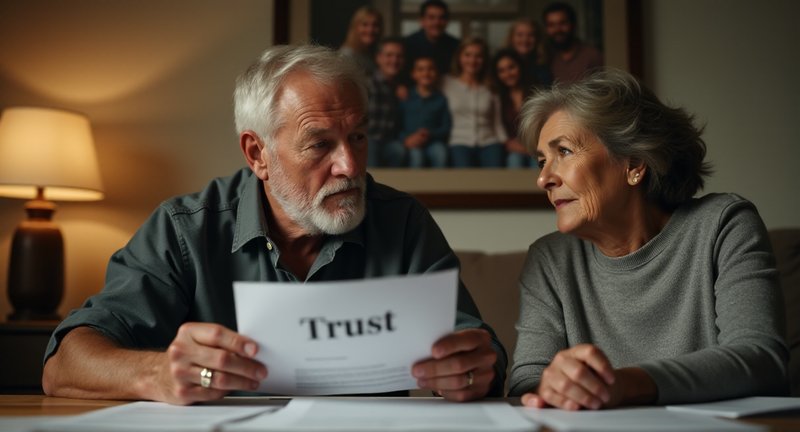The Basics of Lawyers Email List
Building a Lawyers Email List is like collecting the keys to a treasure chest. You’re not just gathering emails; you’re curating direct access to professionals whose insights and influence shape industries. Every email holds the potential to unlock new partnerships, grow networks, and frankly drive your business forward.
I’ve often found that the process of assembling this list feels like detective work. Each contact is a clue, leading you to others who are equally valuable. And, trust me, the journey doesn’t end once you’ve got the list. Maintaining and updating it is an ongoing task, almost like tending a delicate bonsai tree.
There’s also a subtle art to crafting outreach for the Attorneys contact directory. These aren’t just generic messages you’re communicating with busy, discerning individuals who need a reason to care. If you’re not adding value, they’ll hit delete faster than you can blink. So, personalizing your approach is crucial.

I remember when I started, the hardest part wasn’t just compiling the list it was knowing how to use it wisely. There’s power in this information, but without a strategy, it’s like having a map without a compass. You need to know where you’re headed, or it’s just data sitting in your inbox.
Think of the Legal professionals mailing list as your gateway into a network that operates on precision and trust. Handle it well, and it will return the favor tenfold.
Why Building a Lawyers Email List is Crucial for Marketing
Imagine this: you’ve got a killer product or service that could help legal professionals save time, streamline tasks, or even boost their case success rates. But without access to the right contacts, how do you get in front of the people who need you most? That’s where having a curated database of legal professionals can be a game-changer. You’re not just shouting into the void, hoping for a response. Instead, you’re building a bridge directly to a community that is already primed for your services.
The legal profession is built on trust, credibility, and relationships. To market successfully to this group, you have to build a connection first. And one of the most effective ways I’ve seen to nurture these connections is through targeted email campaigns.

Here’s why gathering contacts in the legal field is vital:
- Laser-focused targeting: Rather than sending out generic marketing messages, you get to craft specialized content aimed directly at legal professionals’ unique needs and pain points.
- Cost efficiency: Direct outreach through email often has a better return on investment compared to other forms of advertising, simply because you’re communicating directly with the decision-makers.
- Building authority: Sending consistent, valuable information puts your name in front of key players in the legal world, positioning your brand as an expert resource they’ll remember when they need it.
From my own experience, the hardest part is not just reaching out – it’s standing out. That’s why personalizing those emails and delivering real value is crucial. Don’t just sell educate, inform, and provide something that benefits them. You’ll be surprised how receptive legal professionals can be when approached correctly.
Introduction to Legal Email Directories for Networking
When I first clarified networking within the legal industry, it didn’t take me long to realize how crucial it is to have the right contacts. One way to get those connections? Legal email directories. They’re an absolute game-changer if you know how to use them correctly. Imagine a resource where you can easily access professionals across various specialties trial lawyers, corporate attorneys, and legal consultants alike.
These directories aren’t just a jumble of contacts. They offer refined search tools that let you sort through contacts by expertise, location, or even the type of firm. If you’re serious about building a reliable network, here’s why these directories can be your best ally:
- Segmentation options: You can target specific legal professionals based on your industry or business needs.
- Up-to-date information: Most directories are frequently updated, which means fewer bounced emails or outdated contacts.
- Cost-effective marketing: Compared to traditional networking methods, utilizing these directories offers a cheaper and often quicker way to build connections.
- Time-saver: Rather than attending endless networking events, you get direct access to a pool of legal minds at your fingertips.
But remember, it’s not just about having a database; it’s about what you do with it. Building genuine relationships through personalized emails rather than generic blasts is key. I’ve seen it work, and trust me, it can shift your professional network from average to exceptional.
Networking in today’s digital age has its challenges, but with the right tools, like these email directories, you can stay ahead of the curve. Just make sure you approach it with creativity and a genuine desire to connect.
Why Build an Attorney Contact Database
Let me tell you, one of the most underestimated assets in business today is having a well-organized attorney contact database. It’s not just about having names and numbers at your disposal there’s real strategic power in it. From my experience, creating and maintaining this type of database opens doors, builds relationships, and saves you when legal situations arise.
First, think about how quickly things move in business. When you’re navigating a legal issue, you don’t want to be scrambling for an attorney referral. A database of attorney contacts allows you to have instant access to experts across various fields whether it’s contract disputes, intellectual property, or compliance.
Here are a few reasons why I’ve found building an attorney contact database invaluable:
- Preparedness for Any Legal Situation: You’ll have an attorney for any specialized issue ready at a moment’s notice.
- Expanding Professional Network: Your list of legal professionals can also introduce you to other key players in the business and finance world.
- Tailored Expertise: Not every legal issue requires the same type of lawyer. Having a diverse set of contacts ensures you’re matched with the right expertise.
- Saving Time and Money: Rather than paying a general attorney for broad advice, you can go directly to a specialized lawyer who’s familiar with your industry and situation.
By building this resource, you’re not only future-proofing your business but also ensuring smoother operations when unexpected legal challenges arise. Trust me, this is one tool you want in your back pocket.
Benefits of Targeted Legal Mailing Lists
The beauty of a well-crafted legal mailing list lies in its precision. With just the right audience, your message cuts through the noise, landing directly in the inbox of those who are most likely to need your services. From my experience, this is more than just sending an email it’s about fostering relationships.
When you target the right individuals, you’re not just increasing your open rates. You’re starting conversations with people who already have a vested interest in what you offer. It’s a far more organic way to grow your client base.
There’s also the matter of time. Crafting campaigns for a general audience can feel like shooting in the dark. But with a focused list, you gain a sharper aim. Every email you send is like placing your message in front of a potential client who’s more likely to engage.
What I’ve seen is that this level of targeting often leads to higher conversion rates. Why? Because you’re connecting with the right people. It’s a huge difference from mass marketing where results can be unpredictable.
And if I’m honest, using a tailored mailing list can sometimes feel like you’re saving yourself from unnecessary frustration. Instead of hoping for the best, you’re strategically working towards measurable success.
Strategies for Sourcing Legal Professional Contacts
When you’re looking to establish reliable connections with legal professionals, it’s all about tapping into the right resources with a strategic mindset. Here’s how I approach sourcing legal contacts from my own experience.
-
Network Through Events
Start by attending industry-specific events. Legal seminars, workshops, and conferences are goldmines for making personal connections. Don’t just attend passively – actively engage, ask questions, and stay afterward to exchange details with speakers or attendees. You’d be surprised how many solid connections are built in casual post-event conversations. -
Leverage Professional Associations
Membership directories from bar associations or legal societies are an excellent source. These often give you direct access to established professionals within specialized areas of law. Plus, membership comes with other benefits like networking opportunities and continuing education events, where you can meet and interact with key players in the legal field. -
Use Referrals Strategically
Asking your current contacts for referrals is an often overlooked but incredibly effective method. Reach out to trusted colleagues or business associates for recommendations. Their introduction adds credibility, and you already know these leads come with a level of trustworthiness. -
Online Legal Communities
Don’t underestimate the power of online forums and legal communities. Platforms like LinkedIn or even specialized legal groups give you access to professionals willing to collaborate or share insights. Take time to build rapport in these spaces, and soon you’ll have a solid contact base. -
Specialized Recruitment Firms
If you’re willing to invest a little more, consider partnering with recruitment agencies that specialize in the legal sector. They often have extensive databases and can provide you with contacts tailored to your needs.
Sourcing legal professionals takes a mix of in-person and online strategies. With a bit of effort and creativity, you’ll build a robust network to support your goals.
How to Compile a Database of Legal Professionals
Building a solid database of legal professionals isn’t a task to rush. It’s like planting a seed and nurturing it carefully relationships grow best over time. First, identify the types of legal professionals you need. Not every legal expert specializes in the same areas, so think about what your needs really are. Are you after corporate law experts or personal injury lawyers?
Once you’ve got that clarity, begin with the obvious research. Dig into law firm directories and local bar associations. But here’s a tip: go beyond just names and phone numbers. Connect with them on LinkedIn or through professional networks. Personal rapport opens doors that a cold contact will never unlock.
Next, don’t underestimate the power of referrals. Ask your current contacts if they can introduce you to legal professionals in your field. These warm connections will often respond much quicker and more favorably.
Remember to update and clean your database regularly. There’s no use holding onto stale information. And keep in mind that building this database is as much about keeping track of their skills as it is about their contact details. You don’t just want names; you want expertise at your fingertips.
As a matter of fact, don’t forget the importance of a personal touch. Reach out and maintain occasional contact. Legal professionals are people too, and they appreciate being remembered. A friendly message once in a while could make all the difference when you need their services.
Effective Methods for Collecting Lawyers’ Contact Information
From my own experience, gathering lawyers’ contact details can feel like navigating a maze. I’ve learned it’s about more than just finding names it’s about finding the right ones. The first step I’ve always taken is tapping into professional networks. These spaces are goldmines for legal experts who are not just active but often eager to connect.
Another effective strategy is attending legal seminars and conferences. These events are packed with lawyers who, if you’re savvy enough, will gladly hand over their business cards. One trick? Take the time to strike up meaningful conversations. It’s a far cry from cold calling trust me, they’ll remember you.
Online legal directories, in my view, are like untapped wells. Many law firms list their attorneys in these directories, making it relatively easy to locate and contact them. But here’s a tip: filter based on specialization. You don’t want a family lawyer when what you need is a corporate one, right?
Also, I’ve often found social media platforms like LinkedIn to be treasure troves for legal contacts. A simple connection request can open the door to deeper conversations, especially if you engage with their posts. It’s about being present and visible in their circles.
Of course, none of this is instant it’s a gradual process. But by combining these methods, you’ll find yourself building a solid network of legal professionals over time.
Leveraging Legal Email Lists for Networking Success
In my experience, networking in the legal industry can feel like a maze. But here’s the thing: with the right tools, you can navigate it smoothly. One of my secret weapons? A well-curated Lawyers Email List.
Imagine reaching out to key figures without the struggle of cold introductions. A Attorney contact list allows you to get right to the point. It’s like holding a map to a treasure chest of professional relationships.
And no, it’s not just about sending emails. It’s about building connections with intention. When you have access to the right contacts, you can craft your messages in a way that resonates. This isn’t spamming; it’s strategic communication.
Legal professionals are busy, but they respond to targeted, thoughtful outreach. Your Legal professionals mailing directory gives you that edge offering a direct line to potential mentors, collaborators, or clients. I’ve seen this approach open doors that seemed sealed shut.
When I started using this strategy, I realized that networking isn’t just about shaking hands at events. Sometimes, it’s about having the right contact at the right moment, sitting quietly in your inbox.
There’s real power in having a Barristers’ email database on hand. It’s not just a tool; it’s a bridge to new opportunities in the legal world.
Best Practices for Growing Your Legal Email Network
Growing your legal email network isn’t just about grabbing a few business cards at a networking event or collecting contacts through sheer luck. It’s about taking a thoughtful, strategic approach that respects privacy, builds trust, and adds real value. From my own experience, the key to expanding this network lies in a few fundamental practices.
First, always deliver value upfront. It’s not enough to just send legal updates or promote your services. You need to be sharing relevant, insightful information that speaks to the pain points of your target audience. This could include:
- Curated legal news that highlights changes in regulations.
- Industry-specific insights, tailored to your audience’s particular field.
- Engaging case studies that showcase your expertise and offer practical lessons.
Second, leverage content marketing. Hosting webinars, offering free downloadable legal guides, or even starting a niche blog can help organically grow your network. Every time someone downloads a resource or signs up for a webinar, you’ve earned a contact plus, they’re already engaged with your content.
Third, focus on segmented, personalized outreach. Avoid blanket emails that hit every inbox with the same message. Instead, segment your contacts by practice area, industry, or specific needs, and send tailored communications. People are more likely to engage with emails that feel relevant and personal.
Also, don’t underestimate the power of social proof. Encourage your satisfied clients to share your resources or recommend you to their peers. Word-of-mouth still holds incredible weight in the legal industry, and happy clients can become some of your best referral sources.
Remember, growing a legal email network is about nurturing relationships, not building numbers. Focus on quality over quantity, and you’ll see results over time.
Lawyers Email List: Unveiling the Details
I’ve spent enough time exploring various email databases, and let me tell you finding a targeted email list for attorneys isn’t as simple as it sounds. Whether you’re in marketing or sales, it’s crucial to understand the nuances behind reaching legal professionals through email.
First off, think of the sheer value of having access to a list of professionals who are ready to engage with your product or service. But and this is a big ‘but’ just grabbing a random set of contacts won’t cut it. Legal professionals are cautious with their communications, so relevance is key.

Here are some aspects that demand close attention:
-
Data accuracy: An outdated email is as good as no email. It’s not just about collecting names ensuring the accuracy of every single contact makes all the difference.
-
Compliance with regulations: Legal professionals deal with regulations daily, so naturally, they expect you to follow them too. Compliance with GDPR and CAN-SPAM is non-negotiable if you want to avoid legal headaches.
-
Segmentation: Imagine throwing a dart blindfolded. That’s what mass emailing without segmentation feels like. Segmenting by practice areas (like corporate law, family law, etc.) or geographic location makes the outreach more precise and relevant.
Now, when diving into email strategies for the legal industry, I can’t stress enough how vital personalization is. If you’re offering something of value, whether it’s a service or information, speaking their language metaphorically and literally goes a long way. After all, the goal is to build trust, and in the legal world, trust is earned through thoughtful, targeted interactions.
The Role of Legal Directories in Expanding Your Contact Base
In my journey through the intricate landscape of legal networking, I’ve come to appreciate the profound influence of legal directories on expanding one’s contact base. Imagine standing at a bustling intersection, where every turn offers a new opportunity to connect with potential clients, collaborators, and mentors. This is what engaging with legal directories feels like.
Here’s how these directories can be your beacon in the often murky waters of professional growth:
-
Visibility: By listing your practice, you become part of a curated resource that potential clients actively seek. It’s like having a virtual billboard for your expertise.
-
Credibility: Being featured in reputable directories elevates your status. It sends a message: ‘I’m not just a lawyer; I’m a recognized authority in my field.’
-
Networking Opportunities: Directories often host events or forums. This gives you a chance to mingle with other legal professionals, opening doors to collaborations and referrals.
-
Targeted Reach: Legal directories allow you to specify your practice area, helping you connect with the right audience. This precision can save time and effort in outreach.
-
Insights and Trends: Many directories provide valuable analytics about the legal market, allowing you to adapt and thrive in a competitive landscape.
In my experience, leveraging these directories has transformed my practice. Each listing isn’t just a name on a page; it’s a potential partnership waiting to bloom. So, if you’re ready to take your networking game to the next level, consider integrating legal directories into your strategy. Trust me, it’s a game changer.
How to Ensure Compliance When Using Legal Contact Lists
Ensuring compliance when using legal contact lists is a balancing act that requires both care and knowledge. I’ve navigated this terrain, and trust me, it’s not something to take lightly. The good news is, by following a few key steps, you can confidently avoid those pesky fines and keep your business thriving.
Here’s how I approach it:
-
Understand the Law Inside Out: First things first, you must familiarize yourself with regulations like the GDPR or CAN-SPAM Act, depending on where you operate. These laws govern how you collect and use contact details. Make sure you’re compliant with data privacy and consent requirements.
-
Always Get Clear Consent: No shortcuts here. Before you even think about using someone’s information, make sure you have their explicit permission. A clear opt-in process isn’t just good practice it’s a legal necessity. And, it protects you from hefty penalties.
-
Keep Records of Consent: I can’t stress this enough document everything. If someone subscribes to your list, save that proof. In case you ever need to show regulators that you’re playing by the rules, you’ll have the records to back you up.
-
Give an Easy Opt-Out Option: Nobody likes feeling trapped. So, always provide an easy way for contacts to unsubscribe. It’s not just about compliance; it’s about maintaining trust and good relationships.
-
Regularly Review and Update Your Lists: Keep your contact lists fresh and relevant. Clean out outdated or non-responsive contacts, and regularly update your database. This will not only improve your campaign’s effectiveness but also reduce the risk of non-compliance.
Following these steps has allowed me to stay on the right side of the law while fostering valuable business connections. Compliance isn’t just a box to tick it’s an integral part of your strategy.
Segmenting Your Attorney Email Contacts for Better Results
Segmenting your attorney email contacts is like discovering hidden treasures in a cluttered attic. I’ve learned that precision is the name of the game.
When you divide your contacts into distinct categories, you can tailor your messages to resonate deeply. This isn’t just about sending emails; it’s about crafting experiences that speak to their unique needs and interests.
Imagine you have a group of attorneys specializing in personal injury and another focused on corporate law. By customizing your approach, you can engage each group with relevant insights and updates, transforming your outreach from mundane to memorable.
In my experience, the power of segmentation lies in its ability to boost response rates. It’s akin to having a conversation rather than shouting into a void. When recipients see content that speaks directly to them, they’re far more likely to engage.
Moreover, segmentation enables you to analyze performance more effectively. You can identify which messages resonate best with each segment, refining your strategy over time. This continuous improvement is essential in today’s fast-paced market.
So, take a moment to evaluate your contacts. Who are they? What do they care about? By understanding these nuances, you can craft messages that not only inform but also inspire action.
In the end, successful segmentation is about building relationships, not just sending emails. Embrace this strategy, and watch your engagement soar.
How to Personalize Outreach to Legal Professionals
In relation to reaching out to legal professionals, I’ve discovered that personalization is the secret sauce that transforms a generic message into a compelling conversation starter. Think about it: legal professionals are inundated with cookie-cutter pitches that land in their inboxes daily. So, how do you break through the noise? Here’s what I’ve learned:
-
Do Your Homework
Before hitting send, take a deep dive into their professional profiles. Understand their specialties, recent cases, and even their personal interests. A little research can go a long way. -
Craft Tailored Messages
Use the insights you’ve gathered to customize your outreach. Mention specific cases they’ve worked on or publications they’ve contributed to. For instance:- “I was particularly impressed by your article on intellectual property rights. Your insights on recent court rulings were eye-opening!”
-
Use Their Preferred Communication Style
Notice how they communicate in public forums. Are they formal and concise, or do they prefer a more casual tone? Mirror their style to create a connection. -
Offer Value Upfront
Rather than asking for something right away, think about what you can provide. Perhaps share an insightful resource or a relevant event they might find interesting. -
Follow Up Thoughtfully
If you don’t hear back, a gentle nudge can be effective. But keep it relevant perhaps referencing a recent legal development that ties back to your initial message.
Remember, personal outreach isn’t just about what you want; it’s about building a genuine relationship. So, take the time to connect authentically, and you’ll be amazed at the doors that open.
Top Inquiries
What is a sample email address for lawyers?
A typical sample email address for lawyers usually follows a format that includes their name and the law firm’s domain. For example, it could look like [email protected] or [email protected]. The email address often reflects both professionalism and the specific branding of the legal practice. Using a custom domain, rather than a generic one, helps establish credibility and trustworthiness in the legal field.
How do you send an email to a lawyer?
When sending an email to a lawyer, keep it formal and direct. Begin with a polite salutation like “Dear [Lawyer’s Name],” followed by the purpose of your email in clear and concise terms. Avoid lengthy paragraphs and irrelevant information. Include all necessary documentation or attachments, and ensure your subject line is specific so the lawyer knows what to expect. End the email with a formal closing like ‘Sincerely’ or ‘Best regards,’ followed by your full name.
Do attorneys send emails?
Yes, attorneys often use email for correspondence with clients, colleagues, and other legal professionals. Emails are convenient for sharing documents, discussing case updates, and handling administrative tasks. However, attorneys may choose secure, encrypted platforms to ensure confidentiality, especially when dealing with sensitive legal matters. While emails can be efficient, attorneys might also use phone calls or in-person meetings for more critical discussions.
Is it normal for lawyers to charge for emails?
Yes, it is common for lawyers to charge for emails as part of their billable hours. Whether a lawyer responds to your inquiry or provides legal advice through email, it is considered part of the services rendered. Time spent on reviewing and replying to emails can be significant, especially in complex cases. Lawyers often bill clients in increments of time, such as every 6 or 15 minutes, so even short email exchanges can incur fees.
Should lawyers use Gmail?
Lawyers should be cautious about using Gmail or other free email services due to potential security risks. While Gmail may be convenient, it may not offer the same level of data encryption and security measures required for handling sensitive legal information. It is advisable for lawyers to use email services that offer encryption and are compliant with data protection laws. Many law firms provide their attorneys with secure, firm-branded email addresses for this reason.
Is it better to call or email a lawyer?
Whether to call or email a lawyer depends on the urgency and complexity of the issue. Emails are useful for non-urgent matters, allowing both parties to respond at their convenience and keep a record of communication. However, for time-sensitive or complicated legal issues, a phone call is often more effective, as it allows for immediate clarification and discussion. It’s best to ask your lawyer their preference for certain types of communication.
How to write an email like a lawyer?
Writing an email like a lawyer requires precision, clarity, and professionalism. Begin with a formal greeting, clearly state the purpose of your email, and avoid ambiguous language. Use proper grammar and legal terminology when applicable. Keep the tone respectful and neutral, and always proofread your email to ensure accuracy. Conclude with a formal closing and your full contact details, maintaining a professional demeanor throughout.
How do I end an email to a lawyer?
When ending an email to a lawyer, use a professional and respectful closing such as ‘Sincerely,’ ‘Best regards,’ or ‘Yours faithfully.’ Follow this with your full name and contact information. If you are expecting a response, you can also add a polite request like ‘I look forward to your response’ or ‘Please let me know if you need further details.’ Avoid informal closings like ‘Cheers’ or ‘Take care.’
Why do lawyers not respond to emails?
Lawyers may not respond to emails immediately for several reasons. They might be handling urgent cases, in court, or working on other client matters. Additionally, they may need time to review legal documents or research your issue before replying. If the email requires legal advice or a detailed response, it could take longer. It’s also possible that your email was lost in their inbox, so a polite follow-up is recommended after a reasonable period.
How do I address a legal email?
To address a legal email properly, start with a formal salutation such as ‘Dear Mr./Ms. [Last Name],’ or if addressing a firm, ‘To [Law Firm’s Name]’. Make sure to use the recipient’s professional title if applicable (e.g., ‘Dear Attorney Smith’). Avoid informal language and ensure the email is courteous and respectful. The subject line should clearly indicate the purpose of your email to ensure it is promptly addressed.











I love the analogy of a lawyer’s email list being like a treasure chest! It really captures the essence of how valuable these contacts can be. Just like a treasure hunt, each new connection can lead to unexpected opportunities. I completely agree that personalizing outreach is essential. After all, no one wants to feel like just another number in a database! I remember when I first started reaching out; it took me a while to find my voice, but once I did, the connections flowed. The power of a tailored email can truly make a difference!